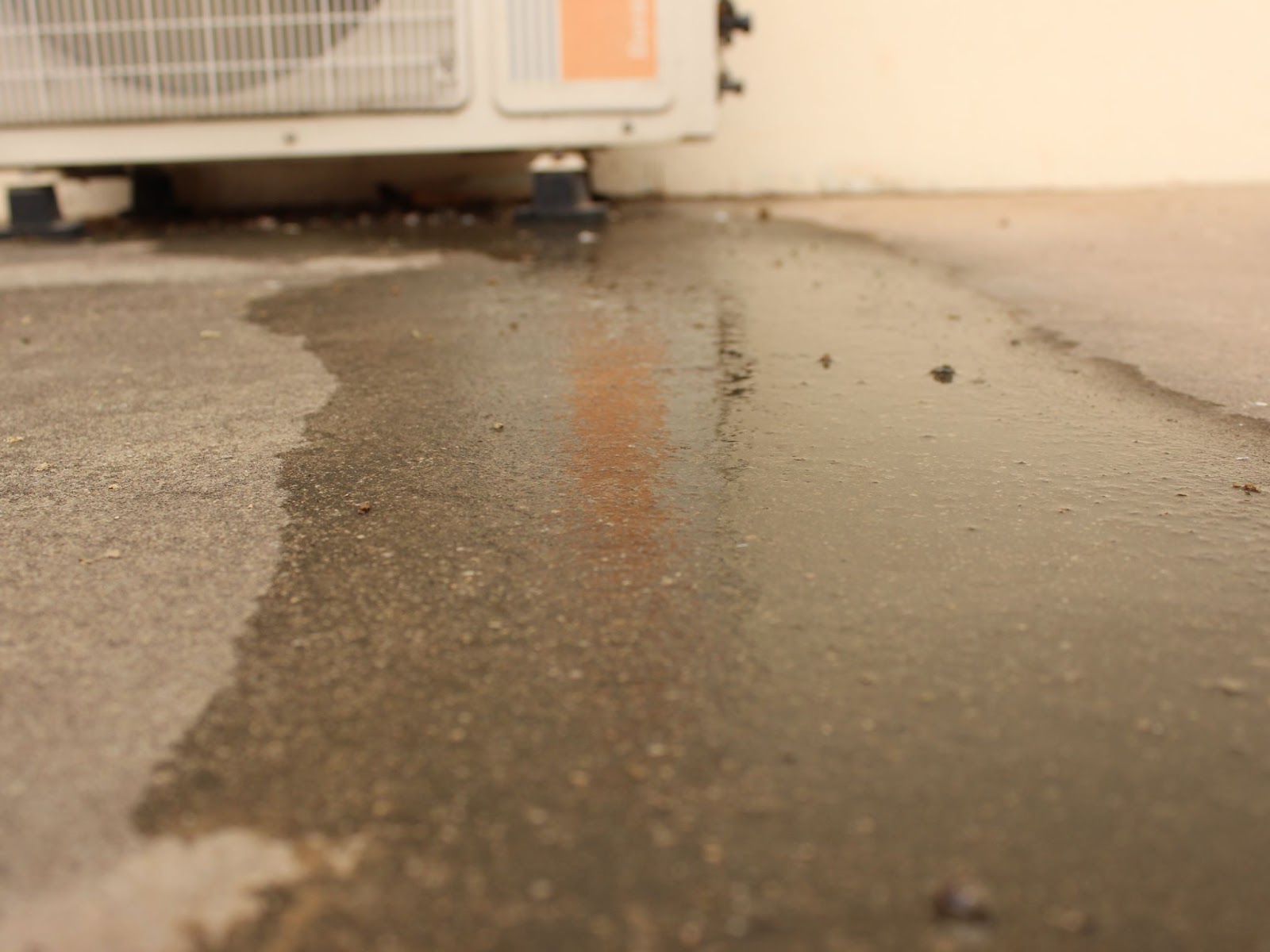

Articles
Why AC Leaking Water
Modified: January 8, 2024
Discover why AC units leak water with our informative articles. Learn common causes and solutions to fix this issue for optimal cooling performance.
(Many of the links in this article redirect to a specific reviewed product. Your purchase of these products through affiliate links helps to generate commission for Storables.com, at no extra cost. Learn more)
Introduction
When your air conditioner starts leaking water, it can be a cause for concern. Not only can it lead to water damage and mold growth, but it also indicates that there may be an underlying issue with your AC system. Understanding why your AC is leaking water is essential to avoid further damage and costly repairs.
In this article, we will delve into the common causes of AC leaks and provide insights into how you can prevent them. By identifying the root cause and taking appropriate measures, you can ensure that your air conditioner operates efficiently and stays leak-free.
Key Takeaways:
- Regularly cleaning and maintaining AC components, scheduling professional maintenance, and replacing worn or damaged parts are essential in preventing AC leaks and ensuring optimal system performance.
- Understanding the common causes of AC leaks and implementing preventive measures can help avoid water damage, mold growth, and compromised cooling performance.
Read more: Why Does AC Leak Water
Understanding AC Leaks
Before we explore the causes of AC leaks, it’s important to have a basic understanding of how air conditioning systems function. An air conditioner works by extracting heat from the air in your home and transferring it outside, leaving cool air in its wake.
During this cooling process, moisture in the air condenses on the evaporator coil within the AC unit. This moisture is collected in a drain pan and funneled away through a drain pipe. However, when something goes wrong, the condensate can accumulate, leading to an AC leak.
AC leaks can manifest in different ways. Some leaks may be noticeable as water dripping from the AC unit, while others may go unnoticed until water damage occurs. Regardless of the apparent severity, any sign of a leak warrants attention to prevent further complications.
Now that we have a basic understanding of AC systems and how leaks occur, let’s explore the common causes behind these leaks.
Common Causes of AC Leaks
AC leaks can be caused by various factors, ranging from minor issues to more significant problems. Understanding these causes can help you identify and address the issue promptly. Here are some common causes of AC leaks:
- Condensate Drain Line Clogs: One of the most common causes of AC leaks is a clogged condensate drain line. Over time, dirt, dust, algae, and other debris can build up in the drain line, obstructing the flow of water. As a result, the condensate accumulates in the drain pan and eventually overflows, causing a leak.
- Dirty Air Filters: When the air filters in your AC system become clogged with dirt, dust, and other particles, it restricts the airflow and hampers the cooling process. This can lead to the evaporator coil freezing up. Once the coil starts to thaw, excess condensate is produced, overwhelming the drain pan and causing a leak.
- Low Refrigerant Levels: Refrigerant is responsible for absorbing heat from the air and cooling it. If your AC system has low refrigerant levels due to a leak or improper installation, it can cause the evaporator coil to freeze. As the ice melts, it can lead to water overflow and subsequent leaks.
- Faulty Installation or Maintenance: If your AC system was not installed or maintained correctly, it can contribute to leaks. Incorrect installation can lead to improper drainage, while inadequate maintenance can result in component malfunctions, such as a damaged drain pan or clogged drain line.
- Damaged or Blocked Drain Pan: The drain pan is designed to collect the condensate and route it through the drain line. Over time, the drain pan may become damaged due to age, corrosion, or accidental impact. Additionally, debris can accumulate in the drain pan, obstructing the flow of water and causing leaks.
By familiarizing yourself with these common causes, you can better assess the potential reasons behind your AC leak. In the next section, we will discuss the signs that indicate your AC system is leaking water.
Condensate Drain Line Clogs
One of the main causes of AC leaks is a clogged condensate drain line. The condensate drain line is responsible for carrying the collected water from the drain pan to the outside of your home. Over time, this drain line can become clogged with dirt, dust, algae, mold, or other debris, hindering the flow of water and causing it to back up into the AC unit.
When the condensate drain line is clogged, the water has nowhere to go and may overflow, resulting in leakage. Not only can this cause damage to your AC unit, but it can also lead to water damage in your home and the growth of mold and mildew.
The clogging of the condensate drain line can occur due to various reasons:
- Buildup of Dirt and Dust: Over time, dirt, dust, and other airborne particles can accumulate in the condensate drain line, leading to a blockage. This buildup is more likely to occur if you haven’t been regularly cleaning or maintaining your AC system.
- Algae and Mold Growth: The dark, damp environment inside the condensate drain line provides a perfect breeding ground for algae and mold. As these organisms grow, they can form a clog and prevent water from flowing freely.
- Pest Infestation: In some cases, pests like insects or rodents may find their way into the condensate drain line and build nests or leave debris behind, causing a blockage.
Preventing condensate drain line clogs is crucial to avoid AC leaks. Here are some preventive measures you can take:
- Regular Cleanings: Be proactive in maintaining your AC system by regularly cleaning the condensate drain line. You can use a mixture of bleach and water to flush out any dirt, dust, or algae buildup.
- Install a Drain Line Cleaning Device: Consider installing a drain line cleaning device, such as a drain pan treatment tablet or a condensate drain line brush. These devices can help prevent clogs by keeping the drain line clear of debris.
- Schedule Professional Maintenance: Engage the services of a professional HVAC technician to inspect and maintain your AC system annually. They can thoroughly clean and flush the condensate drain line to ensure it remains unobstructed.
By taking these preventive measures, you can reduce the chances of experiencing an AC leak caused by a clogged condensate drain line. In the next section, we will explore another common cause of AC leaks – dirty air filters.
Dirty Air Filters
Dirty air filters can be a significant culprit behind AC leaks. Air filters are designed to trap dust, dirt, pollen, and other particles, preventing them from circulating in your home’s air. However, over time, these filters can become clogged with debris, decreasing their effectiveness and obstructing the airflow through the AC system.
When the airflow is restricted, the evaporator coil, responsible for removing heat and humidity from the air, can become excessively cold. This can cause moisture in the air to freeze on the coil. When the coil eventually thaws, an excessive amount of condensate is produced. This excess water can overwhelm the drain pan, leading to leakage.
Regularly changing or cleaning your air filters is crucial to prevent AC leaks caused by dirty filters. Here are some key points to keep in mind:
- Frequency of Filter Changes: The frequency at which you should change your air filters depends on various factors, such as the type of filter, the number of pets in your home, and the presence of allergies. However, as a general guideline, it is recommended to change or clean your filters every 1-3 months.
- Inspecting the Filters: Regularly inspect your air filters to check for accumulated dirt and debris. If the filters appear dirty or clogged, it’s time to clean or replace them.
- Proper Filter Maintenance: When cleaning reusable filters, follow the manufacturer’s instructions and use mild soap and water or a dedicated filter cleaning solution. Allow the filters to dry completely before re-installing them.
- Upgrading to High-Efficiency Filters: Consider using high-efficiency filters, such as HEPA (High-Efficiency Particulate Air) filters, which are designed to capture smaller particles and improve indoor air quality. These filters may need to be changed more frequently due to their finer filtration, so be sure to monitor their condition regularly.
By maintaining clean air filters, you can ensure proper airflow and prevent the evaporator coil from freezing, ultimately reducing the risk of AC leaks. However, dirty air filters are not the only cause of AC leaks. In the next section, we will explore another potential cause – low refrigerant levels.
Read more: Why Is My Portable AC Leaking Water
Low Refrigerant Levels
Low refrigerant levels are another common cause of AC leaks. Refrigerant is the substance responsible for absorbing heat from the air and cooling it down. It circulates through the AC system, transitioning from a gas to a liquid and back again, facilitating the cooling process.
If your AC system has low refrigerant levels, it means there is either a leak or an improper initial installation. When there is a refrigerant leak, the system starts losing its cooling capacity, resulting in insufficient cooling performance and increased energy consumption.
When the refrigerant levels are low, the evaporator coil may not be able to absorb enough heat from the air. As a result, the coil can become excessively cold, causing moisture in the air to freeze on its surface. When the coil eventually thaws, it can lead to an excessive amount of water dripping into the drain pan, overwhelming it and causing leaks.
If you suspect that your AC system has low refrigerant levels, it’s crucial to address the issue promptly. Here are some steps to take:
- Contact a Professional: Reach out to a licensed HVAC technician who can inspect your AC system and check for refrigerant leaks.
- Refrigerant Leak Detection: The technician will use specialized tools and equipment to detect and locate any refrigerant leaks in your AC system.
- Repairing the Leak: Once the leak is identified, the technician will repair it by sealing the leak or replacing the damaged component. It’s important not to attempt DIY repairs, as handling refrigerant requires specialized training and licensing.
- Recharge the Refrigerant: After the repair, the technician will recharge the refrigerant to the proper levels, ensuring optimal cooling performance.
- Regular Maintenance: To prevent future refrigerant leaks and maintain the efficiency of your AC system, schedule regular professional maintenance. This will help identify any issues early on and ensure the proper functioning of your AC system.
Addressing low refrigerant levels and repairing any leaks is essential for the efficient operation of your AC system and to prevent leaks caused by frozen evaporator coils. However, it’s not the only factor that can contribute to AC leaks. In the next section, we will explore the role of faulty installation or maintenance.
Faulty Installation or Maintenance
Faulty installation or inadequate maintenance of your AC system can lead to AC leaks. Proper installation and regular maintenance are crucial to keeping your AC system running efficiently and preventing potential issues.
When an AC system is improperly installed, it can result in various problems that may cause leaks. Some examples include incorrect placement of the drain pan or drain line, subpar insulation around the drain line, or improper connection of the components. These installation errors can lead to improper drainage, water accumulation, and subsequent leaks.
Inadequate maintenance can also contribute to AC leaks. Without regular inspection and servicing, components of your AC system can deteriorate over time. For instance, a damaged or corroded drain pan can develop cracks or holes, causing water to leak. Neglected maintenance can also result in clogged drain lines, dirty evaporator coils, or malfunctioning condensate pumps, all of which can lead to leaks.
To prevent AC leaks caused by faulty installation or maintenance, follow these guidelines:
- Choose a Reliable HVAC Contractor: When installing a new AC system or seeking maintenance services, ensure that you hire a reputable HVAC contractor with experience and expertise in AC installation and maintenance.
- Regular Professional Maintenance: Schedule professional maintenance for your AC system at least once a year. During these visits, the technician will inspect and clean components, identify any potential issues, and address them promptly.
- Address Repairs Immediately: If you notice any signs of AC trouble, such as leaks or strange noises, contact a professional technician to diagnose and repair the issue. Delaying repairs can lead to further damage and more extensive leaks.
- Keep Records of Maintenance: Maintain a log of all maintenance performed on your AC system, including dates, services rendered, and any parts replaced. This documentation can help track the system’s history and improve future maintenance.
By ensuring proper installation and regular maintenance, you can minimize the risk of AC leaks caused by faulty installation or neglected servicing. In the next section, we will discuss another important factor that can contribute to AC leaks – a damaged or blocked drain pan.
Damaged or Blocked Drain Pan
A damaged or blocked drain pan is another common cause of AC leaks. The drain pan is located beneath the evaporator coil and serves as a collection point for the condensate that forms during the cooling process. The collected water is then directed to the drain line and removed from your home.
If the drain pan becomes damaged or develops cracks or holes over time, it can result in water leakage. These damages can occur due to wear and tear, corrosion, or accidental impacts. Water can seep through the damaged areas and escape, causing leaks. Additionally, if the drain pan becomes clogged with dirt, debris, or mold growth, it can obstruct the proper flow of water and lead to overflow and leakage.
To prevent AC leaks caused by a damaged or blocked drain pan, consider the following preventive measures:
- Regular System Inspections: Schedule periodic inspections of your AC system, including the drain pan, to identify any signs of damage or blockage. A professional technician can assess the condition of the drain pan and recommend repairs or replacement if necessary.
- Clean the Drain Pan: Regularly clean the drain pan to remove any accumulated dirt, debris, or mold. Use a mild detergent or a vinegar-water solution to clean the pan, ensuring it is free from any obstructions that might impede water flow.
- Inspect for Cracks or Holes: Visualize the drain pan for any cracks, holes, or signs of deterioration. If you notice any damage, contact a professional technician to repair or replace the drain pan promptly.
- Consider a Secondary Drain Pan: Installing a secondary drain pan underneath your AC unit can provide an added layer of protection against leaks. In the event that the primary drain pan fails, the secondary pan can catch the water and prevent it from causing damage.
Regular maintenance and monitoring of the drain pan can help prevent AC leaks caused by damage or blockage. By addressing any issues promptly, you can maintain the proper functioning of your AC system and avoid the potential water damage associated with leaks.
In the next section, we will discuss the signs that indicate your AC system is leaking water.
Check the condensate drain line for clogs or blockages. A clogged drain line can cause water to back up and leak from the AC unit. Regularly cleaning the drain line can prevent this issue.
Signs of AC Leaks
Identifying the signs of AC leaks is crucial for addressing the issue promptly and preventing further damage. Here are some common indicators that your AC system might be leaking water:
- Visible Water Drips: The most obvious sign of an AC leak is the presence of visible water drips or pooling around the AC unit. You might notice water dripping from the vents, excessive moisture around the unit, or water stains on walls or floors near the AC system.
- Strange Noises: If you hear unusual gurgling or bubbling sounds coming from your AC system, it could indicate that water is not draining properly. These noises could be an indication of a blocked drain line or a clogged drain pan.
- Musty Odors: AC leaks can contribute to the growth of mold and mildew in your AC system. If you notice a musty or moldy smell coming from your vents or near the AC unit, it could be an indication of water accumulation and mold growth.
- Uneven Cooling: AC leaks can disrupt the cooling process and lead to inconsistent cooling in different areas of your home. If you notice that certain rooms feel warmer or more humid than others, it could be a sign of an AC leak affecting the airflow and cooling performance.
- Increased Humidity Levels: AC systems are designed to remove excess humidity from the air. If you notice that the indoor air feels excessively humid or sticky, it could be a sign that your AC system is not functioning properly and leaking water.
- Water Damage: AC leaks can cause water damage to your home, including stained walls, blistering paint, warped floors, or an increase in pest activity. If you notice any signs of water damage, it’s important to address the issue promptly to prevent further deterioration.
If you notice any of these signs, it is essential to take action to prevent further damage and potential health risks associated with water leaks and mold growth. Contact a professional HVAC technician to diagnose the issue and determine the necessary repairs.
Now that we’ve discussed the signs of AC leaks, in the next section, we will explore preventive measures to maintain a leak-free AC system.
Read more: Why Is My AC Vent Leaking Water
Water Damage and Mold Growth
AC leaks can cause significant water damage to your home and lead to the growth of mold and mildew. The accumulation of water from a leaking AC system can wreak havoc on your property, causing structural damage and compromising the indoor air quality. Understanding the potential consequences of AC leaks can help you appreciate the importance of addressing the issue promptly.
Here are some key points to consider regarding water damage and mold growth:
- Structural Damage: Water leaks can result in serious structural damage to your home. Excessive water exposure can warp wooden structures, damage drywall, and compromise the integrity of your walls, ceilings, and flooring.
- Electrical Hazards: Water leaks near electrical components pose a safety risk. If water comes into contact with electrical wiring or outlets, it can lead to short circuits, electrical fires, and other hazardous situations. It is essential to address AC leaks promptly to minimize the risk of electrical damage.
- Mold and Mildew Growth: The excess moisture generated by AC leaks provides an ideal environment for mold and mildew to thrive. Mold growth can not only damage your property, but it can also cause health issues, including respiratory problems, allergies, and asthma. It is crucial to address AC leaks to prevent mold and mildew growth and maintain a healthy indoor environment.
- Pest Infestations: Standing water from AC leaks can attract pests such as ants, termites, and mosquitoes. These pests can cause further damage to your property and pose health risks. Taking steps to prevent AC leaks can help reduce the likelihood of pest infestations.
- Increased Energy Costs: AC leaks can impact the efficiency of your cooling system, causing it to work harder to maintain the desired temperature. This can lead to higher energy consumption and increased utility bills. By fixing AC leaks, you can improve the efficiency of your AC system and reduce energy costs.
Considering the potential consequences of water damage and mold growth, it’s crucial to address AC leaks as soon as they are detected. Promptly contacting a professional HVAC technician and taking appropriate measures will help mitigate these risks and protect your home and health.
In the next section, we will discuss preventive measures that can help you avoid AC leaks altogether.
Preventing AC Leaks
Preventing AC leaks is key to maintaining a properly functioning and efficient cooling system, as well as protecting your home from water damage and mold growth. By implementing the following preventive measures, you can reduce the likelihood of AC leaks and ensure the longevity of your AC system:
- Regularly Clean and Maintain AC Components: Keep your AC system clean by regularly cleaning or replacing air filters, clearing debris from the condenser unit, and cleaning the evaporator coils. This helps maintain proper airflow, prevents dirt and dust buildup, and reduces the risk of clogs or freezing.
- Schedule Professional AC Maintenance: Regular professional AC maintenance is essential to keep your system in optimal condition. HVAC technicians can inspect your AC unit, clean components, check for any signs of leaks or damage, and perform necessary repairs or adjustments.
- Replace Worn or Damaged Parts: If any component of your AC system, such as the drain pan or the condensate drain line, is worn or damaged, it’s important to have it replaced promptly. Faulty or damaged parts can contribute to AC leaks and compromise the overall performance of your system.
- Monitor and Clear Drain Lines: Regularly inspect the condensate drain line for any signs of clogs or blockages. If you notice water backing up or slow drainage, clear the line using a wet/dry vacuum or call a professional to perform a thorough cleaning.
- Maintain Proper Refrigerant Levels: Low refrigerant levels can lead to AC leaks and decreased cooling efficiency. Have a professional HVAC technician check and maintain the appropriate refrigerant levels in your AC system.
- Ensure Proper Installation: If you are installing a new AC system or replacing components, make sure to hire a reputable HVAC contractor who will perform proper installation and ensure that all components are correctly connected.
Incorporating these preventive measures into your AC maintenance routine can help you avoid AC leaks and maximize the performance and lifespan of your cooling system. Remember that regular attention and care play a significant role in preventing potential issues that can lead to costly repairs and water damage.
By paying attention to the health of your AC system and taking proactive steps, you can enjoy a leak-free and efficiently functioning air conditioning system all year round.
Regularly Clean and Maintain AC Components
One of the most important preventive measures for avoiding AC leaks is to regularly clean and maintain your AC components. Proper maintenance helps ensure optimal performance, airflow, and efficiency of your air conditioning system. Here are some key steps to follow:
- Clean or Replace Air Filters: Air filters play a crucial role in trapping dust, dirt, and other particles in the air. Over time, these filters can become clogged, obstructing airflow and reducing the cooling efficiency of your AC system. Regularly inspect your air filters and clean or replace them according to the manufacturer’s recommendations.
- Clean the Evaporator Coil: The evaporator coil is responsible for absorbing heat from the air, and it can accumulate dirt, dust, and debris over time. This buildup can impede heat transfer and cause freezing of the coil. Clean the evaporator coil annually or when it appears dirty using a soft brush or a commercial coil cleaner.
- Clean the Condenser Unit: The condenser unit, located outside, can also gather debris such as leaves, grass, and dirt. Clean the area around the unit and remove any obstructions that could impact airflow. Use a hose or a soft brush to clean the condenser coils and fins, being careful not to damage them.
- Inspect and Clear the Drain Line: Check the condensate drain line for any signs of clogs or blockages. A clogged drain line can cause water to back up and lead to AC leaks. Use a wet/dry vacuum or a pipe cleaner to clear any debris or use a mixture of bleach and water to flush out the drain line and prevent the growth of algae or mold.
- Check the Drain Pan: Regularly inspect the drain pan for any signs of damage or cracks. A damaged drain pan can contribute to leaks and water damage. If you notice any issues, contact a professional technician to repair or replace the drain pan.
- Inspect and Clean the Blower Motor: The blower motor plays a vital role in circulating cooled air throughout your home. Remove any dirt or debris that may have accumulated on the blower motor, as this can impact its performance and airflow.
In addition to these steps, it’s essential to follow the manufacturer’s guidelines and recommendations for maintaining your specific AC system. Regular cleaning and maintenance not only help prevent AC leaks but also improve the overall indoor air quality of your home. It’s a good idea to create a maintenance schedule and set reminders to ensure that these tasks are done consistently.
By taking the time to regularly clean and maintain your AC components, you can enjoy the benefits of a well-functioning and efficient air conditioning system while minimizing the risk of AC leaks and costly repairs. Remember, a little effort in maintaining your AC system can go a long way in preserving its performance and prolonging its lifespan.
Schedule Professional AC Maintenance
While regular cleaning and maintenance of your AC components are important, it’s equally crucial to schedule professional AC maintenance on a routine basis. Hiring a professional HVAC technician to perform a comprehensive inspection and servicing of your air conditioning system can help identify potential issues early on and ensure its optimal performance. Here’s why professional AC maintenance is essential:
- Thorough System Inspection: HVAC technicians have the expertise to conduct a detailed inspection of your AC system. They will examine each component, including the condenser, evaporator coil, blower, refrigerant levels, electrical connections, and more. This inspection allows them to detect any hidden issues that may not be visible during routine cleaning.
- Cleaning and Tune-Up: A professional maintenance service typically involves cleaning and optimizing the various parts of your AC system. This includes cleaning the coils, checking and adjusting fan belts or motors, lubricating moving parts, and testing the overall system performance. These tasks help improve energy efficiency, prevent untimely breakdowns, and extend the lifespan of your AC unit.
- Identifying and Addressing Potential Problems: One of the main benefits of professional AC maintenance is the early detection of potential problems. HVAC technicians have the knowledge and experience to identify impending issues that may lead to AC leaks or system failure. By addressing these issues promptly, they can help prevent more extensive damage and costly repairs down the line.
- Ensuring Proper Refrigerant Levels: Maintaining the correct refrigerant levels in your AC system is vital for optimal cooling performance. A professional technician can measure and adjust refrigerant levels if needed, ensuring that your AC system operates efficiently and minimizes the risk of AC leaks caused by low refrigerant levels.
- Extending the Lifespan of Your AC System: Regular professional maintenance can significantly extend the lifespan of your AC system. By keeping all components in good working order, cleaning and lubricating moving parts, and addressing any issues proactively, you can maximize the longevity of your AC unit and delay the need for a costly replacement.
It’s generally recommended to schedule professional AC maintenance at least once a year, preferably before the start of the cooling season. However, if you live in a region with hot and humid climates or rely heavily on your AC system, you may benefit from more frequent maintenance visits.
Remember to choose a reputable HVAC company or technician for your maintenance services. Look for licensed professionals with experience in AC systems and positive customer reviews. A reliable technician will provide a thorough inspection, offer expert advice, and ensure that your AC system is in optimal condition.
By prioritizing professional AC maintenance, you can enjoy peace of mind knowing that your system is well-maintained, efficient, and less prone to AC leaks and breakdowns. It’s an investment that will pay off in terms of comfort, energy savings, and the longevity of your AC system.
Read more: Why Does My Window AC Leak Water
Replace Worn or Damaged Parts
Replacing worn or damaged parts is a crucial aspect of preventing AC leaks and ensuring the optimal functioning of your air conditioning system. Over time, various components can deteriorate or become damaged, affecting the efficiency and reliability of your AC unit. Here’s why it’s important to replace worn or damaged parts:
- Preventing AC Leaks: Faulty or worn parts can contribute to AC leaks. Whether it’s a cracked drain pan, a damaged seal, or a deteriorated gasket, these issues can cause water to escape from your system and result in leaks. By replacing worn or damaged parts promptly, you can prevent potential water damage to your home and maintain a leak-free AC system.
- Restoring Proper Functioning: Worn or damaged parts can impact the overall functioning of your AC system. For example, a worn-out blower fan can hinder airflow, reducing cooling efficiency. By replacing such components, you can restore proper functioning, improve energy efficiency, and ensure consistent comfort throughout your home.
- Preventing Further Damage: Ignoring worn or damaged parts can lead to more extensive damage in the long run. For instance, a faulty condensate drain line can cause water to back up and overflow. If left unresolved, this can lead to water damage and potentially affect other components of your AC system. By replacing worn or damaged parts proactively, you can mitigate the risk of further damage or the need for expensive repairs.
- Maintaining Energy Efficiency: Worn or damaged parts can decrease the energy efficiency of your AC system. For example, a deteriorated or dirty evaporator coil can impede heat transfer, forcing your system to work harder and consume more energy to cool your home. By replacing such components, you can improve energy efficiency, reduce utility bills, and lessen your environmental impact.
- Prolonging the Lifespan of Your AC System: Timely replacement of worn or damaged parts helps prolong the lifespan of your AC system. By addressing issues promptly and maintaining your system in good condition, you can avoid unnecessary strain on other components and prevent premature failure. This ensures that your AC unit operates reliably for a longer period, saving you from the expense and inconvenience of an untimely replacement.
If you suspect that certain components of your AC system are worn or damaged, it’s essential to seek professional assistance. HVAC technicians have the expertise to diagnose the issue accurately and recommend the appropriate replacements. Whether it’s a faulty drain pan, a worn-out gasket, or a malfunctioning condensate pump, they can source and install the necessary parts to restore your AC system’s optimal functionality.
Remember, regular maintenance and inspections can help in identifying worn or damaged parts before they lead to leaks or other complications. By staying proactive and addressing issues promptly, you can keep your AC system running smoothly, prevent AC leaks, and prolong its lifespan.
Conclusion
AC leaks can be a cause for concern, leading to water damage, mold growth, and compromised cooling performance. However, by understanding the common causes of AC leaks and implementing preventive measures, you can avoid these issues and maintain a leak-free and efficient air conditioning system.
Condensate drain line clogs, dirty air filters, low refrigerant levels, faulty installation or maintenance, and damaged or blocked drain pans are all potential culprits behind AC leaks. Regularly cleaning and maintaining AC components, scheduling professional AC maintenance, and replacing worn or damaged parts are essential steps in preventing AC leaks and ensuring optimal system performance.
By staying proactive and attentive to the health of your AC system, you can identify signs of AC leaks, such as visible water drips, musty odors, or increased humidity levels, and take prompt action to address them. Preventing water damage, mold growth, and potential electrical hazards associated with AC leaks is crucial to protecting your home and maintaining a healthy indoor environment.
Remember to prioritize regular cleaning and maintenance of your AC components, including air filters, evaporator coils, and condenser units. Additionally, scheduling professional AC maintenance at least once a year ensures thorough inspections, cleaning, and addressing any potential issues that may lead to AC leaks.
Replacing worn or damaged parts is another crucial aspect of preventing AC leaks and maintaining the optimal functioning of your AC system. Timely replacement of components such as drain pans, gaskets, or condensate drain lines can prevent water leaks and extend the lifespan of your AC unit.
In conclusion, AC leaks can be avoided with proper care and maintenance. By implementing preventive measures, conducting regular inspections, and addressing issues promptly, you can enjoy a well-functioning, energy-efficient, and leak-free air conditioning system.
Stay vigilant, prioritize maintenance, and seek professional assistance to ensure the longevity and reliability of your AC system. By doing so, you can keep your home cool, comfortable, and free from the potential damages associated with AC leaks.
Frequently Asked Questions about Why AC Leaking Water
Was this page helpful?
At Storables.com, we guarantee accurate and reliable information. Our content, validated by Expert Board Contributors, is crafted following stringent Editorial Policies. We're committed to providing you with well-researched, expert-backed insights for all your informational needs.
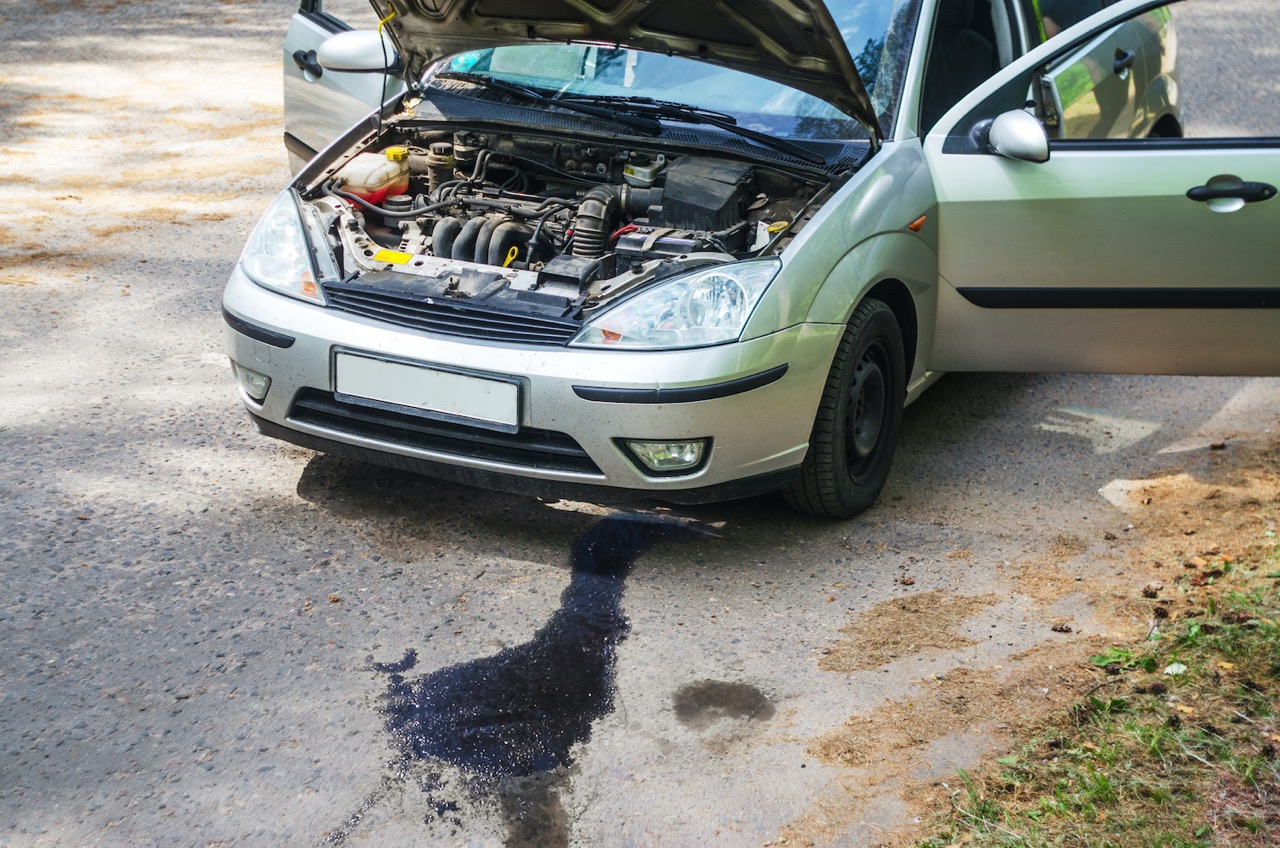
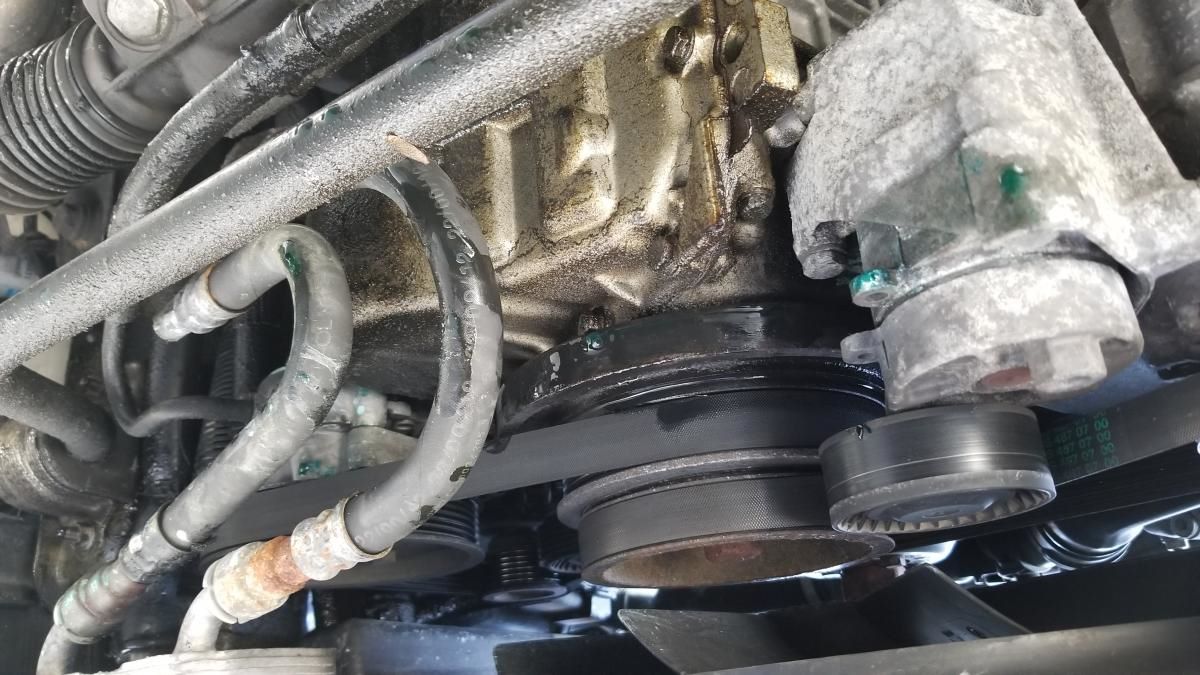
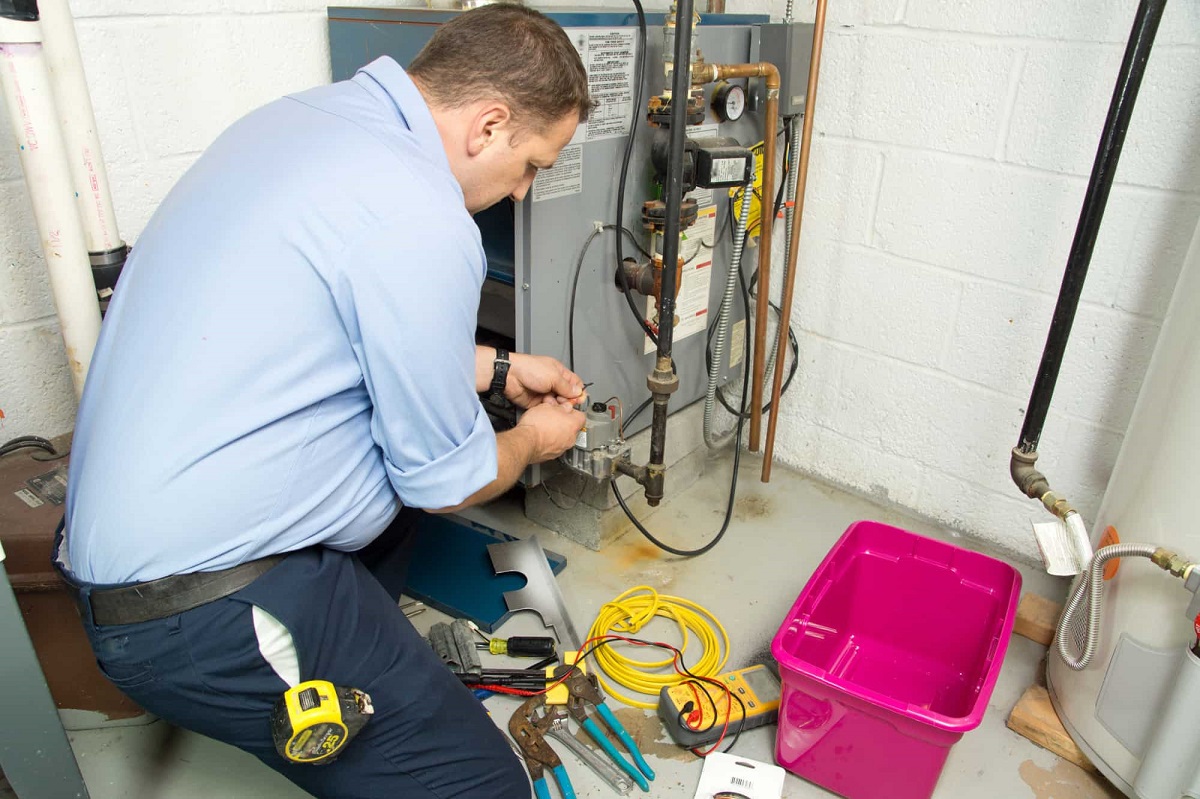
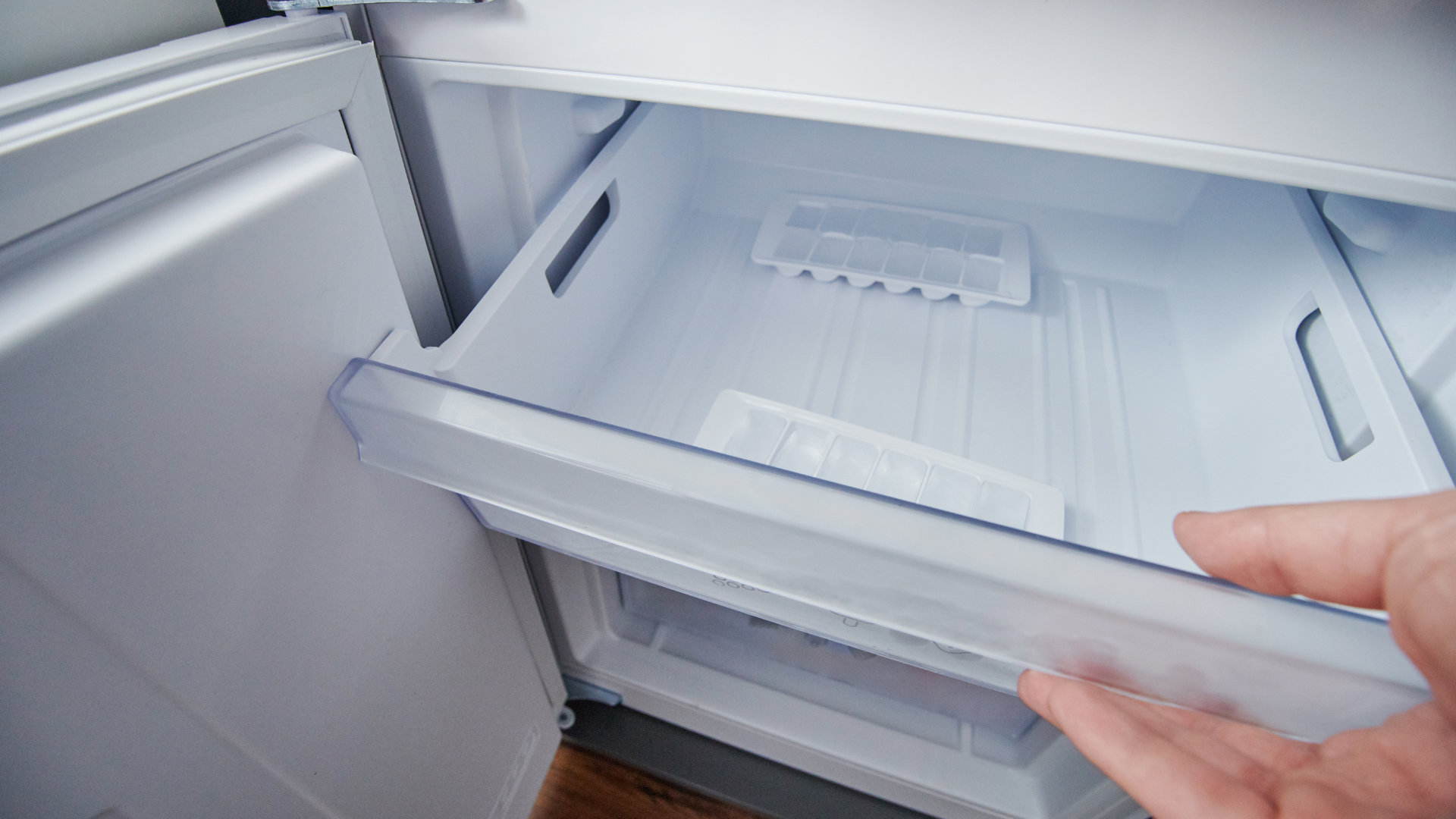
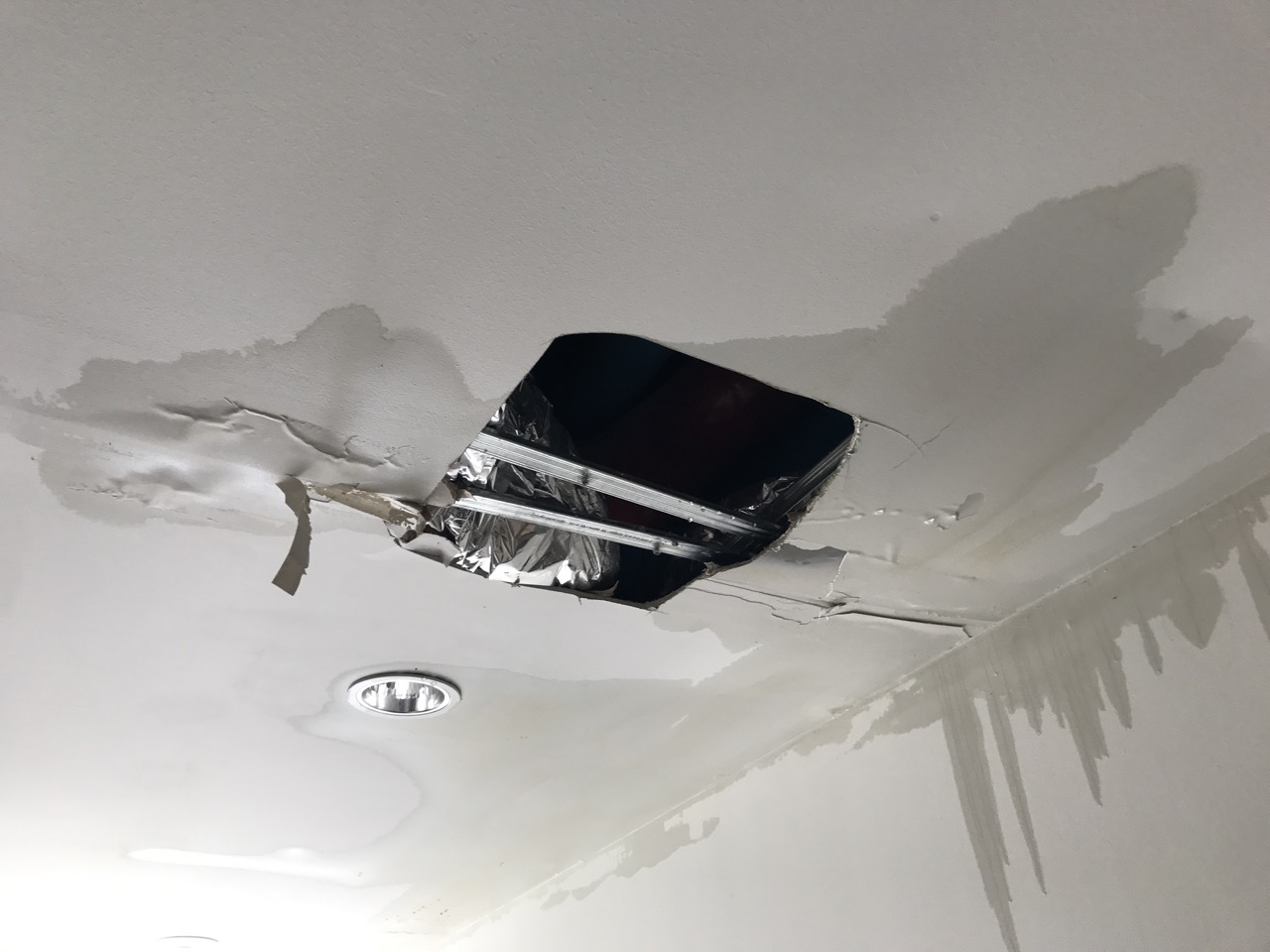
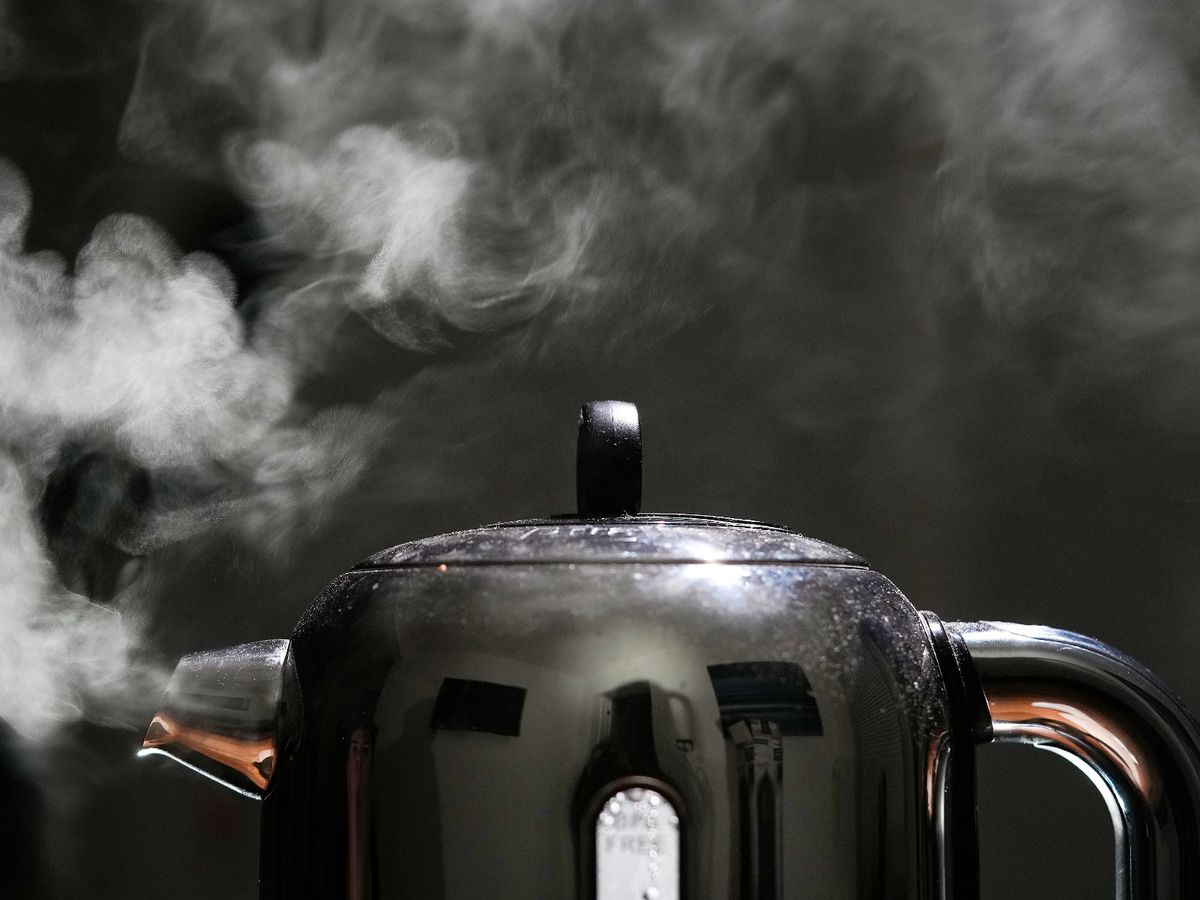
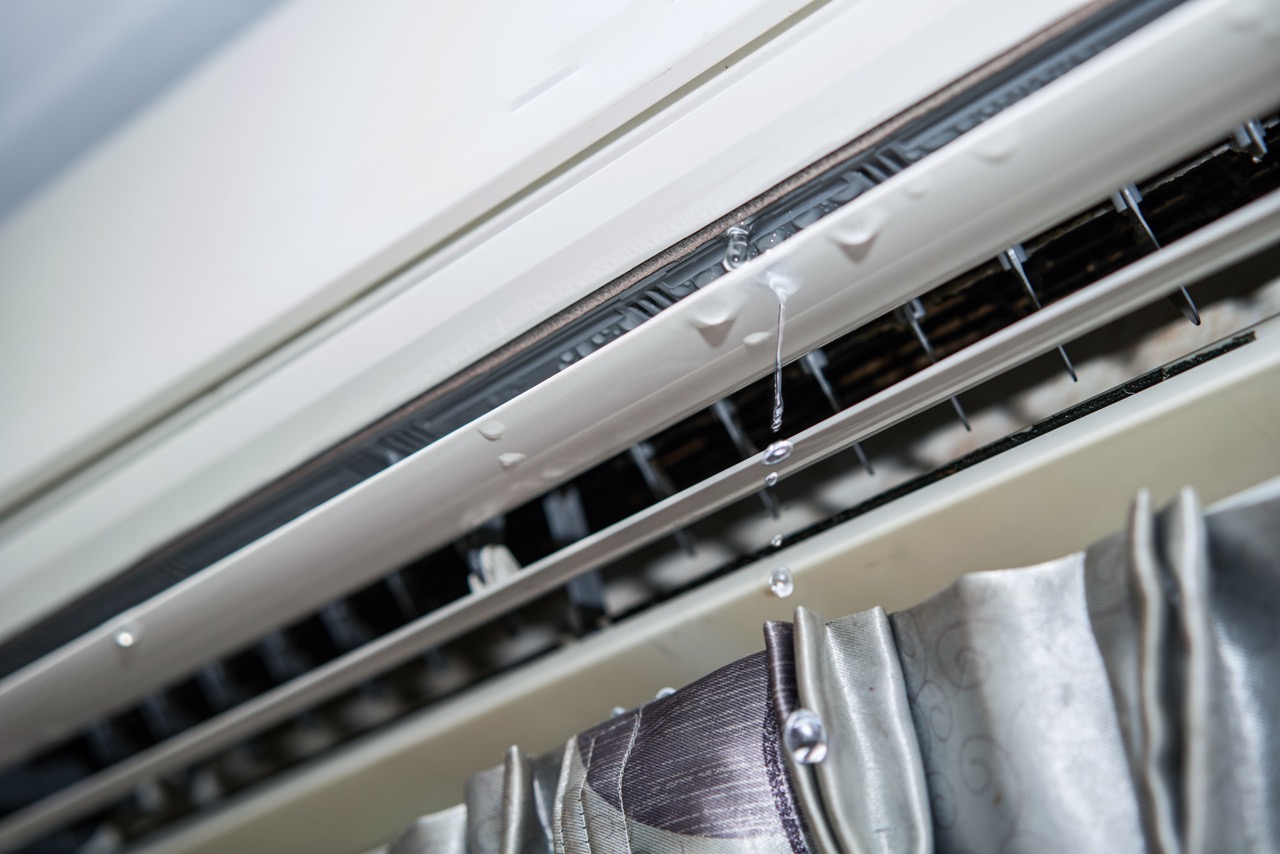
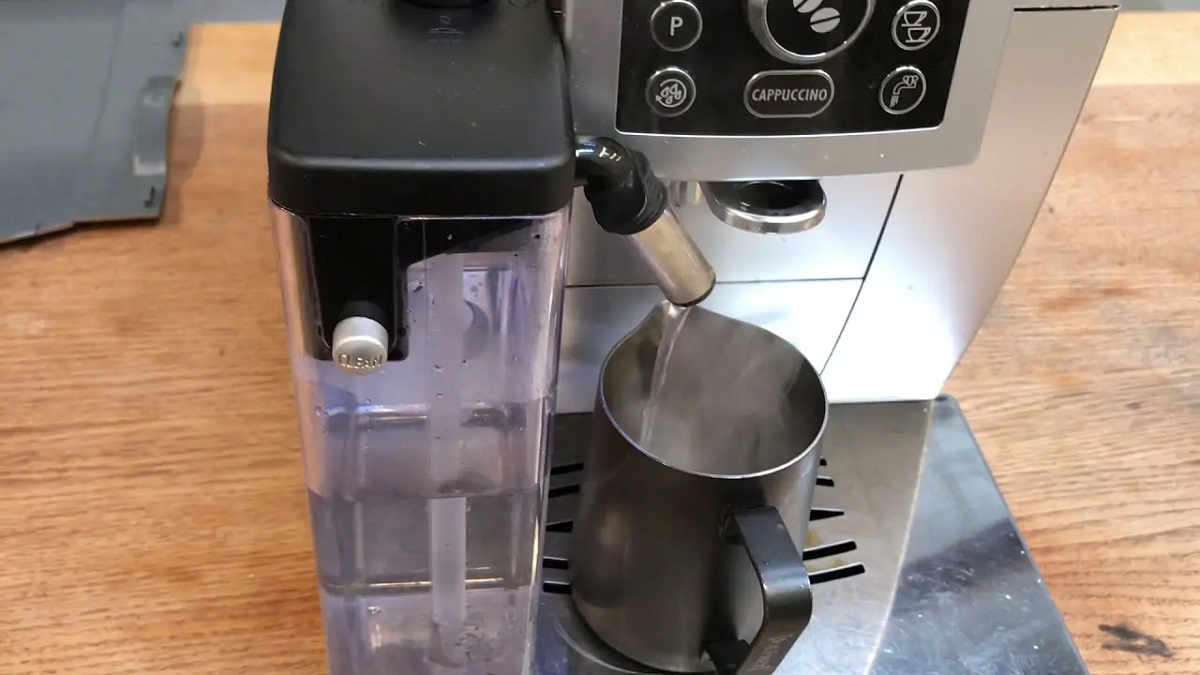
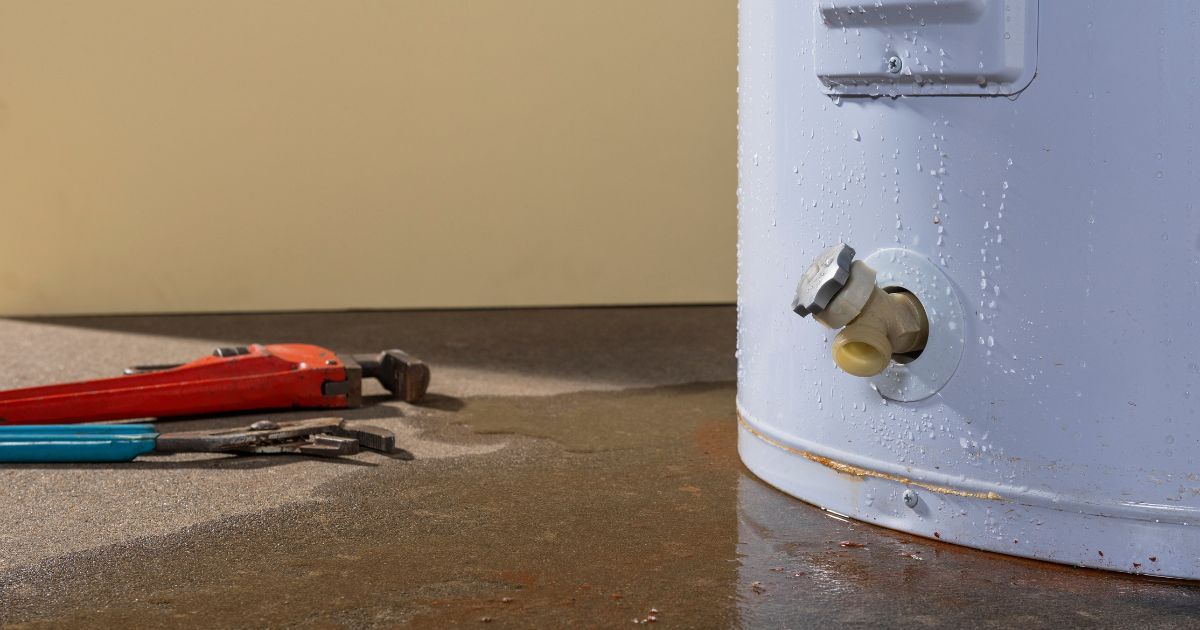
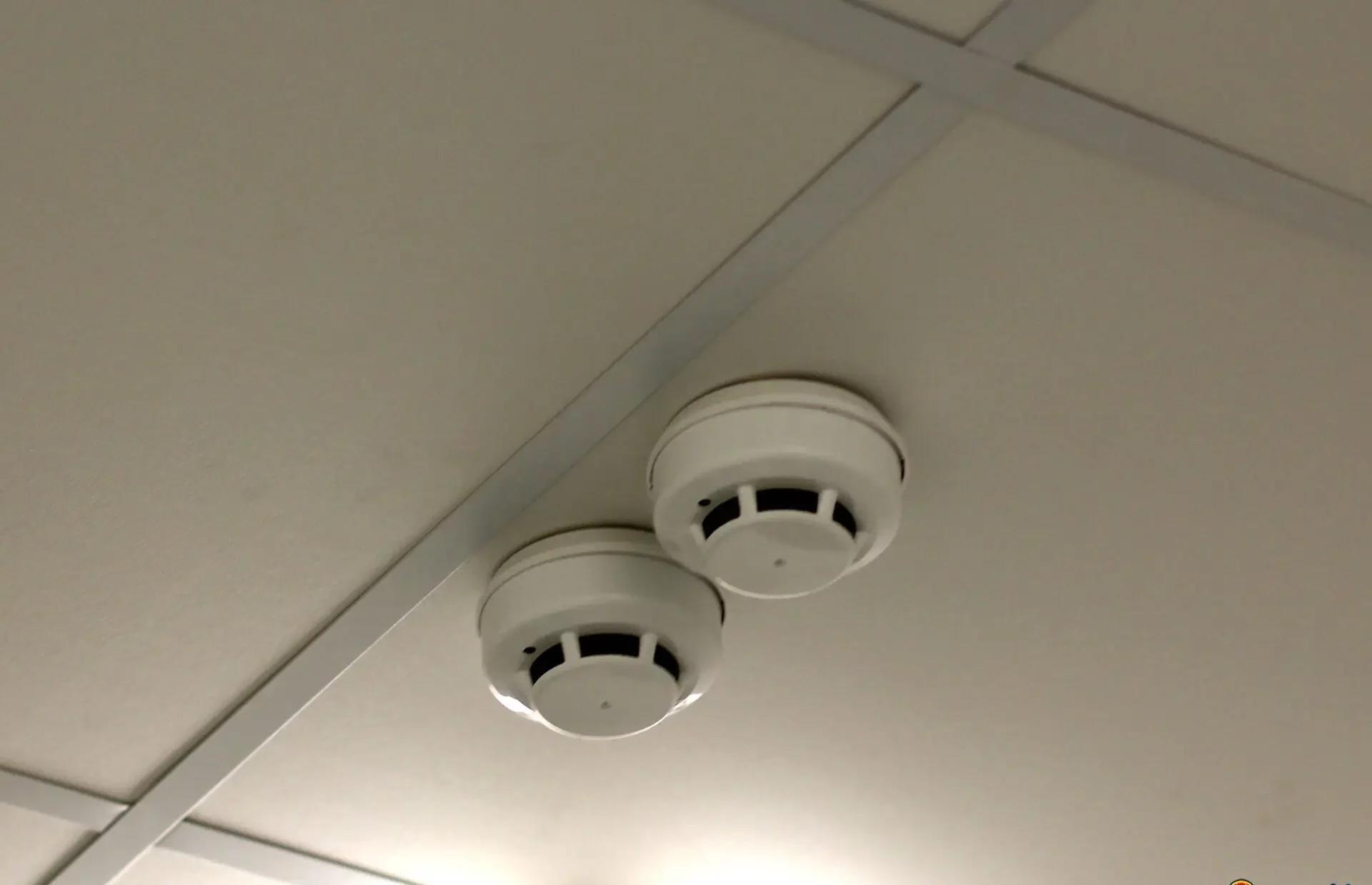
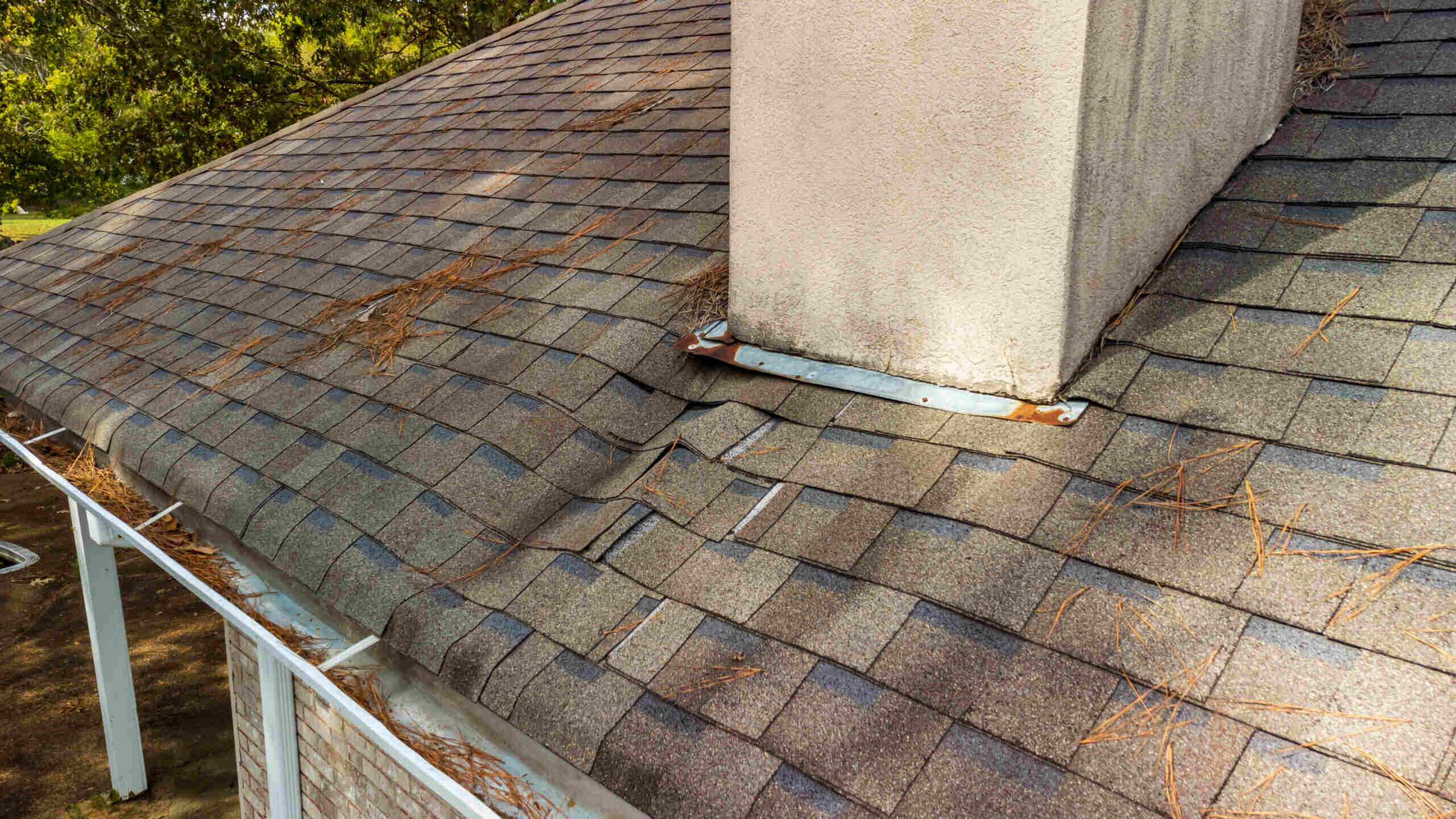
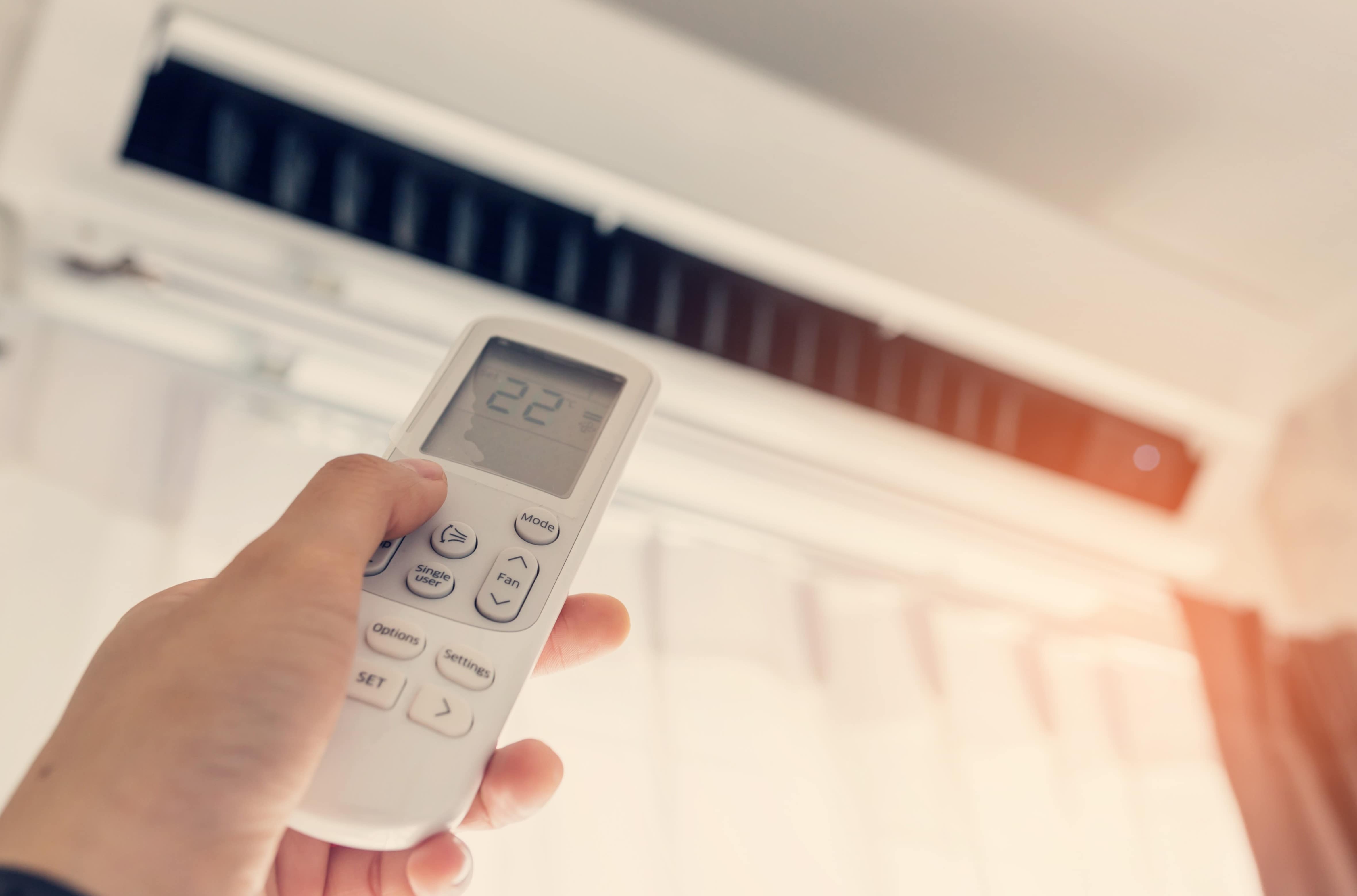

0 thoughts on “Why AC Leaking Water”